Checking URLs for viruses – a complete guide


One common method used by hackers to infiltrate websites is through malicious URLs. With the rapid growth of cyber threats, it is crucial for website owners, especially those using WordPress, to ensure the safety of their online presence. In this comprehensive guide, we will explore the significance of URL security and provide you with effective methods to check URLs for viruses, protecting your WordPress site, and ensuring a safe online experience.
Why URL security matters
URL security plays a vital role in safeguarding your website and its visitors from potential threats. A compromised URL can lead to various security risks, including malware infections, phishing attacks, and identity theft. Hackers often employ deceptive techniques, such as disguising malicious links in emails, social media posts, or online advertisements, to trick unsuspecting users into clicking on them.
As a WordPress site owner, it is essential to be vigilant about the URLs you encounter and share. By ensuring the security of the URLs you interact with, you can protect your website’s integrity, maintain SEO rankings, preserve organic traffic, safeguard your brand reputation, and, most importantly, protect your website visitors from harm.
Real-life examples of URL virus attacks
In 2017, a global cyberattack by the WannaCry ransomware cryptoworm targeted computers running the Microsoft Windows operating system by encrypting data and demanding ransom payments in Bitcoin. It propagated through EternalBlue, an exploit in older Windows systems. WannaCry impacted over 200,000 computers across 150 countries, with total damages ranging from hundreds of millions to billions of dollars. This case highlights the dangers of clicking on suspicious links, which can lead to massive, widespread cybersecurity disasters.

More recently, in 2020, hackers gained access to Twitter’s internal systems and hijacked numerous high-profile accounts, including those of Barack Obama, Elon Musk, and Bill Gates. They posted tweets from these accounts soliciting Bitcoin, promising to double any amount sent to a specified Bitcoin address. This attack exploited human vulnerabilities rather than technical ones, sending over $100,000 in Bitcoin to the attackers’ addresses. The incident raised serious concerns about social media security and the dangers of trusting URLs and messages, even when they appear to come from reliable sources.
Tools to check URLs for viruses
To help you navigate the complex world of URL security, we have compiled a list of effective tools and techniques that will assist you in verifying the safety of URLs before clicking on them. These tools will analyze the URLs for potential malware, phishing attempts, and other security threats, empowering you to make informed decisions and stay one step ahead of cybercriminals.
1. VirusTotal
VirusTotal is an online tool designed to analyze suspicious files and URLs for malware detection. It aggregates data from multiple antivirus scanners and URL/domain blacklisting services to provide a comprehensive view of the security threat. Scanning URLs for viruses is crucial for cybersecurity as it helps identify and neutralize potential threats before they cause harm.
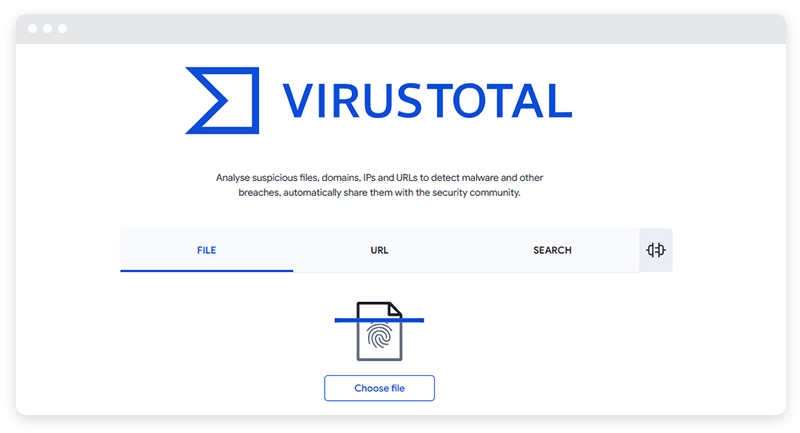
VirusTotal stands out due to its wide-ranging collaboration with the security community, making it a highly effective and trusted malware detection and analysis resource. For more detailed information, you can visit their website at VirusTotal.
2. Scanurl
Scanurl is another reliable, independent website that allows you to check the safety of URLs. Scanurl polls various trusted sources, including Google Safe Browsing Diagnostic, PhishTank, and Web of Trust, by submitting a URL query through a secure HTTPS connection to provide comprehensive information about the queried site’s Whois record. The results will indicate if the website is safe to visit, helping you make informed decisions about the URLs you encounter.
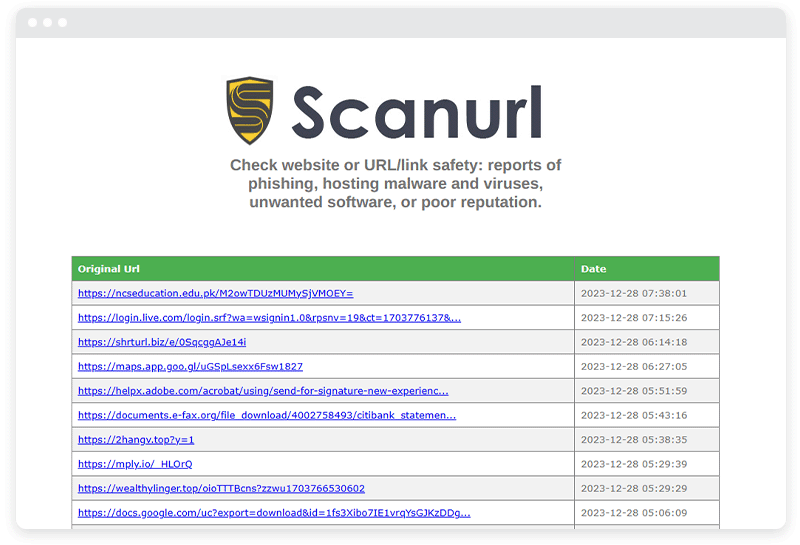
Scanurl also allows you to contribute by providing an explanation of where you encountered the URL. This valuable input can help other users avoid potentially harmful links. Once the Scanurl result page is loaded, you can share the permanent URL with others for reference, allowing them to verify the safety of the link.
3. PhishTank
While malware detection is essential, protecting yourself from phishing attacks is equally crucial. PhishTank specializes in identifying and verifying phishing links, helping you determine if a URL will lead you to a legitimate or phishing website. By entering a URL suspected of harboring a phishing operation, PhishTank will check it against its extensive database, which many other tools here rely on. If the link is already flagged as dangerous, you will receive instant results. Otherwise, the site will provide a tracking number for further investigation.
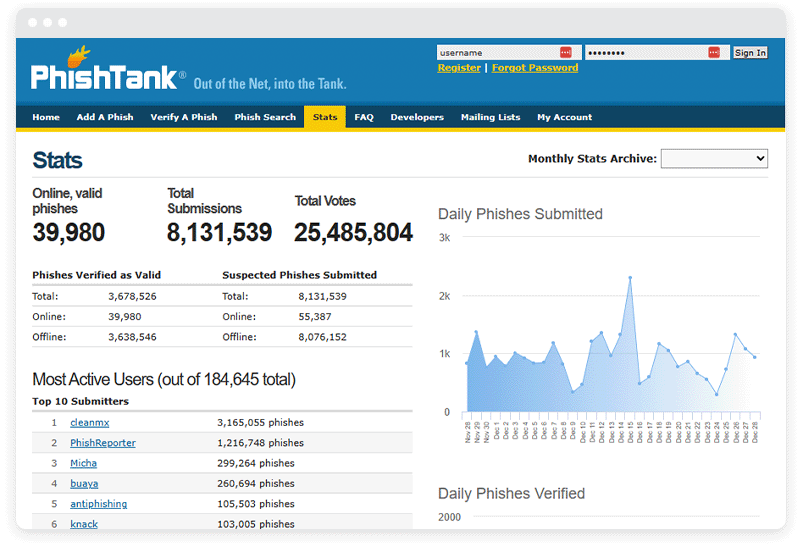
Phishing attacks pose significant risks, as they often aim to deceive users into divulging personal information. By using PhishTank, you can proactively protect yourself and your website visitors from falling victim to such attacks.
4. URLVoid
URLVoid, a free service offered by NoVirusThanks, an Italian IT company, is designed to detect potentially malicious websites. By inputting a URL into the search field, URLVoid provides information about the URL’s history, any blacklisting status, and, if available, the location of the website. The service utilizes renowned security providers, including Avira, BitDefender, and PhishTank, to generate results.
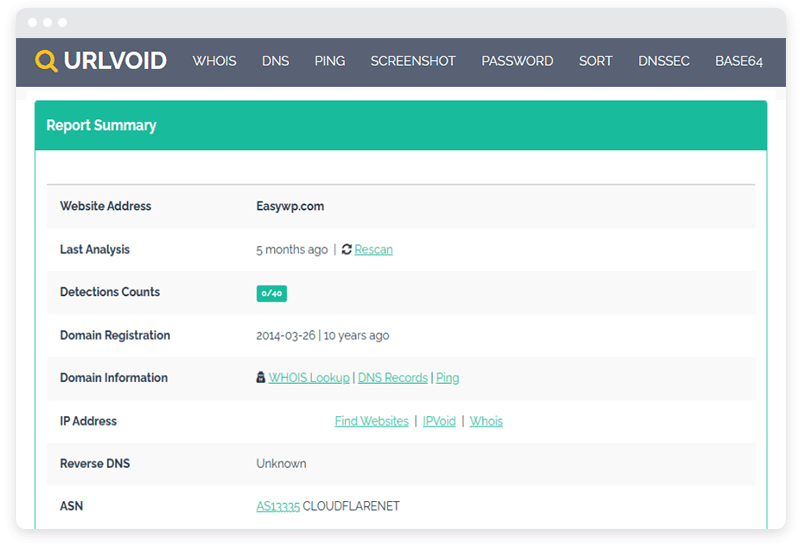
URLVoid also offers a companion service called IPVoid, which allows you to scan IP addresses for potential security risks. Moreover, for developers, APIvoid enables the creation of custom link safety checkers. By leveraging URLVoid’s services, you can proactively identify potential threats and protect your website and its visitors.
5. Sucuri SiteCheck
Sucuri, a company specializing in website security services, offers SiteCheck, a free tool that scans websites for security issues, including malware, viruses, and malicious code. As a WordPress site owner, you can rely on SiteCheck to check the security of your website and ensure a safe online environment for your visitors.
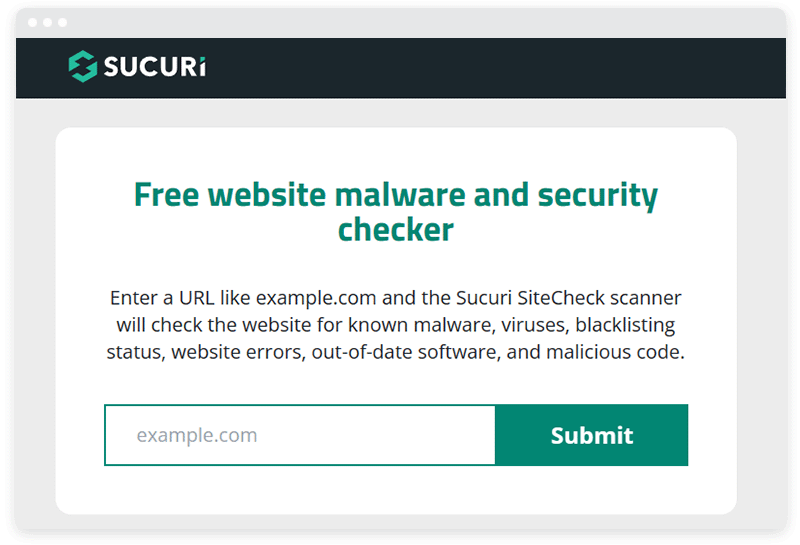
Using SiteCheck is straightforward – copy the site’s web address and paste it into the designated URL field. By clicking “Submit,” SiteCheck will generate comprehensive results, indicating the security status of the website. The tool also checks the domain’s blacklisting status by referring to trusted sources such as Google Safe Browsing, McAfee, and ESET.
It is crucial to regularly utilize SiteCheck to monitor your WordPress site for any security anomalies, configuration issues, or security recommendations. By staying proactive and addressing potential threats promptly, you can maintain the integrity and security of your website.
6. IsItWP Free WordPress Website Security Scanner
The IsItWP Free WordPress Website Security Scanner is a specialized tool for scanning WordPress websites for known malware, hacks, and security vulnerabilities. Powered by Sucuri, a leading security service, it provides detailed reports on malware threats, website blacklist status, and other security aspects. Its benefits include early detection and prevention of security breaches, protection of online reputation and search rankings, and ensuring the safety of website data.
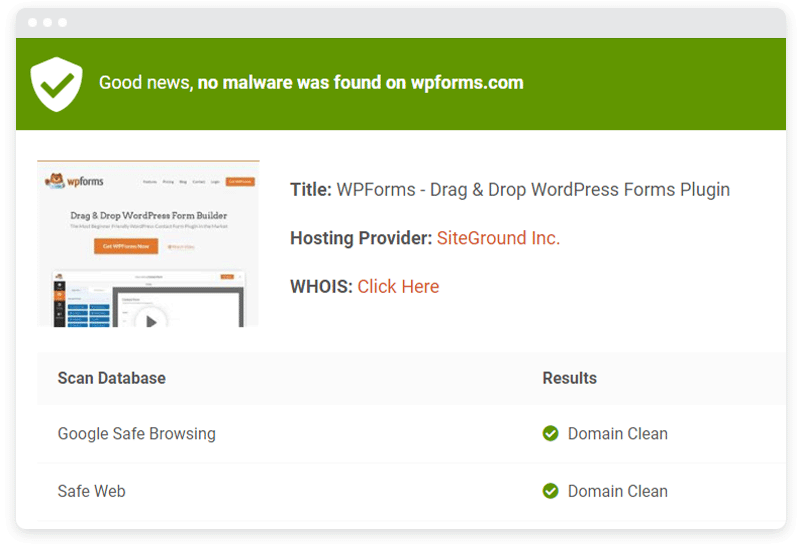
This tool is particularly valuable for WordPress users because it focuses on WordPress-specific vulnerabilities and uses up-to-date scanning methods.
7. Malcure Malware Scanner
The Malcure Malware Scanner WordPress plugin is a comprehensive security tool for WordPress sites, designed to detect and remove malware, viruses, and other security threats. It offers detailed scanning of WordPress files and databases, including a comparison with official WordPress repositories for integrity checks.
The plugin integrates with Google Search Console for early warning of security issues and provides a clear classification of infections. It’s highly efficient in identifying various malware types and offers a user-friendly interface with features like one-click results copying and full compatibility with the latest WordPress release.
8. AntiVirus
The AntiVirus WordPress plugin is designed for hardening WordPress sites against exploits, malware, and spam injections. Its key features include daily scans of theme files with email notifications, manual scanning, and marking false positives.
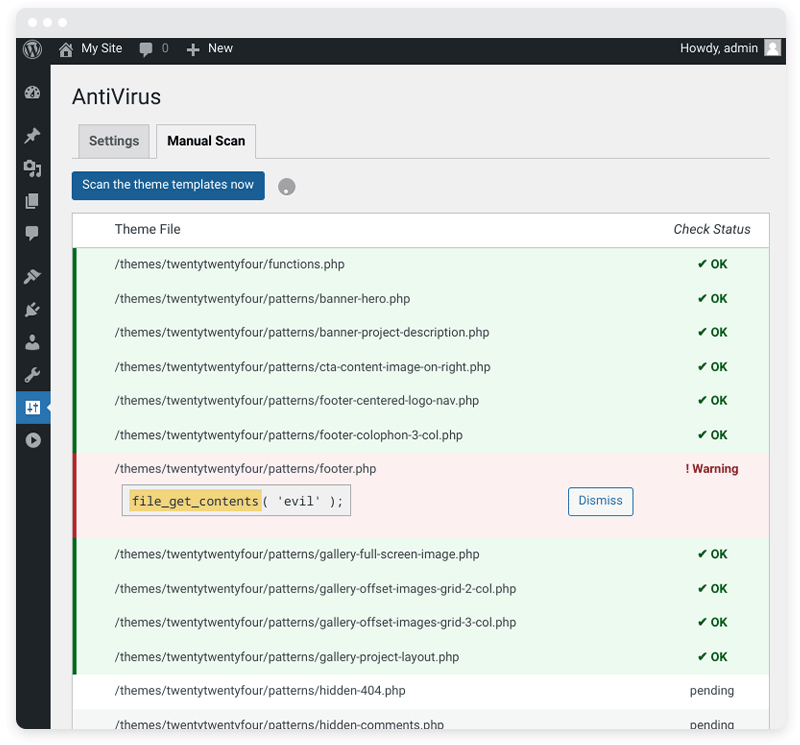
It also offers WordPress Core file checksum verification and integrates Google Safe Browsing for malware and phishing monitoring. This plugin is notable for its ease of use and comprehensive approach to website security.

Future trends in URL security
As the digital landscape evolves, so does the nature of URL security threats and the technology designed to counter them. In this section, we’ll explore the emerging trends and advancements that are shaping the future of URL security, highlighting how they can fortify our defenses against sophisticated cyber threats.
Artificial intelligence and machine learning – these technologies are becoming integral in detecting and responding to URL-based threats more efficiently. They can analyze patterns and predict attacks before they happen.
Blockchain for security – blockchain technology is being explored for its potential to secure URLs by decentralizing domain information storage, reducing the risk of DNS attacks.
Increased use of biometric security – biometric verification methods, like facial recognition and fingerprints, are being integrated into security systems to add an extra layer of protection against URL phishing attacks.
Prioritizing URL security
Securing your WordPress site against online threats should be a top priority for every website owner. By understanding the importance of URL security and implementing effective measures to check URLs for viruses, you can safeguard your website, protect your visitors, and maintain a safe online environment.
Remember, a safe website protects your brand reputation and ensures your visitors’ trust and confidence. By prioritizing URL security, you are taking a proactive stance toward creating a secure online experience for yourself and your website visitors. Next, check out our 5 simple steps to prevent WordPress hacks.
